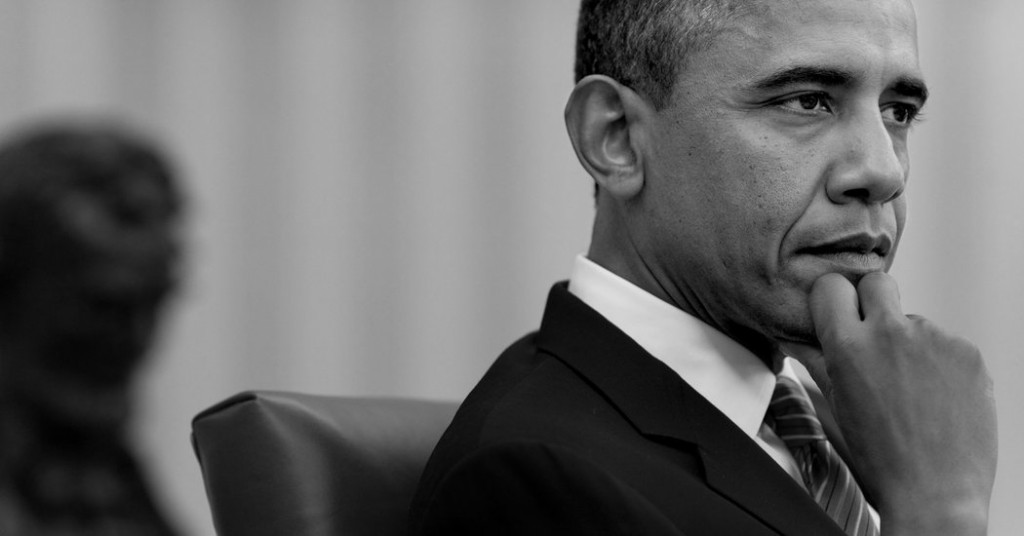by: Darick Taylor ((Photograph by Thomas Windisch.))
Life flows in and out a domestic violence shelter like the taking of a breath, but sometimes, you hold onto that breath just long enough to mean something to someone….

The two-story brick building looked more like a firehouse than a shelter as we pulled up the hill. Maybe it once had been. But when we arrived, the building was clearly a shelter for battered women. Mom hadn’t been beaten, at least not this time, but we had been kicked out on the street after falling behind on rent. Instead of going back to Georgia, and the family we had there, she elected to book us a room in that decrepit shelter, filled with every type of unjust trauma imaginable. I have to forgive the woman – she was not in her right mind when she made the decision.
By the time we parked, at the top of a steep hill hidden in the trees of Ashland, Kentucky, dusk was settling into a crisp, cool night. At that point, I was already crying, not because we were arriving at a safe haven for the domestically abused, but because the man my mother had just split with happened to be the uncle of the girl I thought I loved. I had known her for all of two weeks.
I cried that night in the hallway, a chambered dark corridor with a thin veneer of linoleum frosted over freezing concrete. A few of the daughters of battered women in neck braces and black eyes saw me and took pity. One young woman at the shelter for god knows what reason, who I took to being off her meds at the time, shared with me an awkward kiss that night. We were ratted out despite our half-hearted attempts to avoid the shelter’s security cameras.
The majority of my first night in this purgatory was spent lying on a cot, the aforementioned concrete radiating cold through its canvas bottom. Mom laid on the room’s plasticky single bed that had been retired from another hospital. I clutched tightly the dog-eared copy of Orson Scott Card’s Speaker for the Dead that I had borrowed from the library. Fantasy and Science Fiction helped carry me out of my increasingly limited, fearful reality, and those splendid gems provided the majority of what scant education I attained, for I had not been to school in many years.
Things were not much worse in the shelter, as the weeks passed, than they had been out in the world. We were allowed to swim for free at the YMCA down the street. By “we” I mean myself and the three sons of the developmentally disabled woman who slept one floor up from where Mom and I shared a room. The youngest was five, the oldest thirteen, and I don’t remember the age of the middle one, though I recall that all of them were illiterate. Their mother had come into the place with a duffle bag filled with packs of cigarettes, so I befriended them. We would walk down the hill to the Y, all four of us sucking down sooty cancer, even the littlest one.
The oldest sibling told me in conspicuous tones about how he would take a rifle to court and shoot his daddy and everyone else before letting a judge break up his family. I acted tough, like I had come from their “holler” and regaled them wild tales of my fanciful criminal exploits. I would spin our family into the most prolific, terror-inducing gang Kentucky had ever seen.
I went with two sisters from the shelter and their mother to a Christian-rock concert one time. There I bought a Toy Machine nylon belt at a stand, because it had a devil on it. Faith had left me when I was about eight years old. The reveal that Santa Clause did not exist bothered me a great deal more than the idea of eternal damnation, which was most certain my fate. And so I shunned religion entirely, not desiring that grim destiny to be an incessant aspect of my everyday life.
These two sisters could hardly be more different from one another. The oldest was tall, lanky, and head-to-toe asymmetrical, and the younger girl was a truncated, bronze-skinned vision of modern yet simple beauty. Neither cared very much for me and rightly so, and I felt little connection with them, but I was strident in my desperation for attention.
I remember one time how a stony-eyed, perpetually silent young woman joined our dysfunctional family unit in the middle of the night with her towheaded toddler. He looked like a childhood photo of me come to life. The next day I held the little kid as he cried and wiped his crusty nose on me, calling me “daddy” with a pathos of pure innocence that I have only ever encountered otherwise in the poetry of William Blake. I began to feel the prickling of responsibility as the eldest male in our communal dwelling.
As our time at the shelter flowed numbingly onward, I began to urge the five-year-old member of my little gang to quit smoking. It had fallen on me to put him to bed every night and he would fall asleep in my arms pounding on my chest and face in anarchic defiance. One day I decided to teach the entire trio how to read, beginning with the oldest. We began with a paper-football planchette, and I scrawled out the alphabet on a piece of paper in a mock Ouija Board. Memorizing the alphabet proved to be difficult for my pupil. The patience I learned as a result of my attempts at helping him came not from conscious virtue but from the most visceral of empathy.
The next day in the dining room, my teenaged friend and I conspired to get to the mall and purchase a real Ouija Board. The theory was that we would invoke a demon. Mom took my friend and I to the mall a few miles away on the Ohio state line. My friend had somehow managed to wrangle some money from his poor mother, and I knew better than to ask him how. Our first stop was Hot Topic, where this young man bought a t-shirt for me that is too embarrassing to describe. But what is far more shameful is that as destitute as I was, I had never been so deprived as him, yet I still accepted his gift.
I arranged my wannabe-goth look over the t-shirt I was already wearing, and we headed out. A group of passing suburban kids, uniformly white and dull, audibly called us posers. I remember being aware of the irony inherent in that situation – two of the earthiest, most authentically disenfranchised kids in a state filled with poverty being called fake by a gaggle of ostentatiously well-taken-care-of and oblivious children. Their parents functioned as parents. Our parents were burdens that we carried on our backs.
The now-defunct KB Toys offered up what we were after: an insidious device and tool of Satan just lying there on the shelf. Mom did not know about the moratorium on our spiritualism, so my friend and I snuck our Ouija Board by her with the explanation that it was “just a game.”
That night that we convinced the girls to join us outside the shelter, where we would surreptitiously conjure the dead. As if conjured by our Ouija Board, out of nowhere, a woman walked into the shelter with her twenty-six year-old son. How curious it was, a grown man a decade older than me being there. I, not he, was the patriarch of this place. These were my children, my friends, and we did not need him. Something had to be done.
I told my teenage friend to come with me. He and I walked into the spartan basement living room where the new couple sat in indecent proximity to one another. I yelled an inflammatory word or two, and we kept walking. We had barely reached the first-floor landing in the stairwell when I heard the door open from the basement. There he was, our twenty-six year old intruder, standing a full head taller than me. Everything that happened next felt like one sweeping compaction of a fourth-dimensional glitch. One of the sisters opened the door to the first floor and I gave her my glasses for safe keeping. My gang’s second in command stood behind me, unmoving.
I cannot remember if his first swing connected but before I knew it my feet were lifted off of the ground and I had wrapped my legs around his torso as I held onto his neck with my left arm while smashing the opposing fist into his head and face as fast as I could. Then, the edge of a concrete stair rose to meet the back of my head, as he bent me over wholly, holding me by my shoulder-length hair, and crashing my skull into the ground in a violent attempt to shake me loose.
There was further commotion in the hallway. We had been seen on one of the security cameras. After we were pulled apart, he was sent to his room on the second floor, and I stumbled down to the basement where I found my ear bleeding. The two silver looped earrings I wore had been torn loose. They told me I had to go to the emergency room. I asked my teenage friend to come with me. He said I fought well and could have stood up to most men. As I lay inclined in the hospital bed, my heart measured one hundred and seventy beats per minute. A massive surge of adrenaline had me in its thrall. When a burly cop came in, all I wanted to know is if I had won the fight, and if my opponent was worse off than me. I had been taught that to lose a fight is to suffer the worst kind of ignominy a man can ever face. The cop just chuckled and walked out.
Back at the shelter, a fuzzy voice told me through an intercom that I could not enter the building, that I could not rejoin my motley family, my kids, and my gang. Mom went up the stairs and brought down a few of our belongings. Lying in a cheap hotel bed that night, I rubbed my bruised scalp and wondered how long it would take them all to forgive me.
A conference was called in a building adjoining the shelter. I was told I called an older woman who worked there and tried to break up the fight a “bitch.” They said that I was a demon – my voice and my actions were not my own. They wanted me to go back to school. I muttered an apology and said I only wanted to go back to Georgia.
Our Buick coupe, the backseat piled high with everything that we owned, broke down in a motel parking lot in the middle of Tennessee on the way back home. Mom and I napped in the car while we waited for my grandfather to drive from North Carolina to pick us up. That was my last fight, the last of my ascribing glory to barbarism. I do not know who came out worse off on the physical end of that battle. I had soundly lost the war. And no child has mistaken me for his father since.
Darick Taylor is a mental-health advocate and survivor. He studies Converged Communications at Florida State College at Jacksonville, and he hopes to use his growing skills in media production to combat stigma and support all people who experience adversity.





